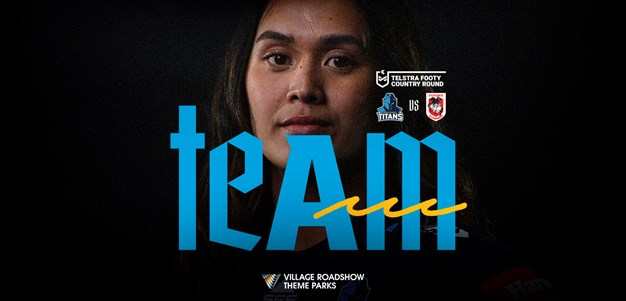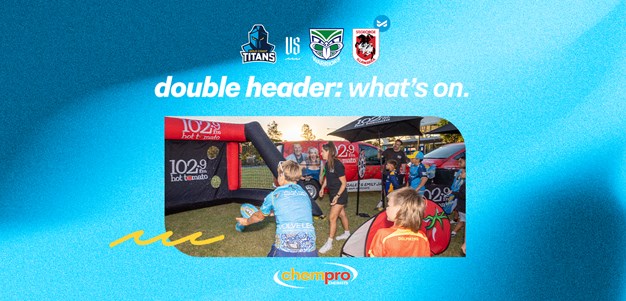

Some of the Aquis Titans NRL and NYC players combined with fellow Indigenous players from Parramatta last weekend to enjoy a special cultural experience in the Gold Coast hinterland.
The weekend camp near Aratula (west of Beaudesert) involved Titans James Roberts, Nathan Davis (NRL squad) and Tyronne Roberts Davis, Ethan Roberts, Jordan Scott, Brayden McGrady and Brian Kelly (NYC).
Joining them were several Eels including NRL regular Luke Kelly while respected Indigenous former Titans player Preston Campbell was involved during the weekend, which was funded by the NRL and came through the hard work of Eels’ education and welfare manager Matt Francis and Titans player welfare manager Peter Smith.
These experiences help our young Aboriginal and Torres Strait Island players explore their understanding of their identity and allow them the opportunity to understand how this plays an integral role in their lives on the field and off the field.
This cultural submersion creates a safe place to explore the positive aspects of strong culture and allows the individuals the opportunity to seek knowledge wisdom and guidance from not only their peer playing group but from elders and other respected men.
The camp was part of The Positive Principles rites of passage program, which is being driven by Titans’ Gamilaroi counsellor Clinton Schultz, who works closely with our Indigenous players. He had great assistance from Jeremy Donovan and Uncle Harold Tayley who were integral to the success of the camp.
Often Aboriginal and Torres Strait Islander players can have difficulty with the rigors of being involved with the NRL when they have to leave the bush, community, family and to a large extent culture behind to pursue a career in rugby league.
The program helps players and staff in the NRL better understand their cultural connection and how to handle any conflicts with their culture and demands of the game.
It focuses on key elements like respect, responsibility, reciprocity, acceptance, connectedness and interconnectedness.
The players went back to basics and slept out at Aratula and sat around a campfire listening to and telling yarns, building a ‘sweat lodge’ type structure using flexible sapling trees called a ‘Jilla Warri’. The structure represents the sanctuary of a turtle shell, entering the womb of the mother earth. The young men gathered particular stones that are then heated for several hours and brought inside the structure, with water then being poured over the stones, creating steam like a sauna’s.
They cooked in an Aboriginal-style ‘hungi’ called a ‘kuppa murri’, using a Kurrma (Yalanji word for ground oven).
Emerging young Titan Brian Kelly, who has been training with the NRL squad during the pre-season, said it was a valuable experience for him which gave him better understanding of his culture, other like-minded footballers and his place in the NRL and how important the connection to culture is in the NRL environment.
“We learned a lot from the elders of the area who told us stories of their growing up and what the land and culture meant to them and we all spoke about respect, responsibility and other things,” he said.
“Collecting wood for the fire and building the shelter, and cooking the kuppa murri, and then heating the stones … it was all new and different but I really got a lot out of it.”
“It was good to talk to other footballers openly about footy and life and our culture. Family and community is important to us and being from Ballina and that area, which a lot of the other boys come from, we appreciate our community and extended family getting something out of what we achieve and the weekend brought that home even more".
“To hear some of the yarns and talk about what respect means to us and our connection with that was really good.”












